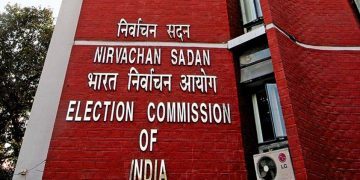By Manish kumar
Post News Network
Bhubaneswar, Jan 9: With a surge in premier educational institutions and reputed firms in the city, many youngsters, mainly bachelors, have now made Bhubaneswar their second home. However, they are finding it difficult to acclimatize to the city, its food and its water and as a result are putting themselves at risk of contracting diseases.
The Centre for Human Reproduction (CR) in December last year was asked to conduct a study by the Indian Council of Medical Research (ICMR) to determine the level of fluoride content in groundwater of four districts of Orissa including Khurda district. High levels of fluoride in drinking water can affect fertility, and untreated water is often consumed freely by students and bachelors at roadside food joints and snack corners.
“In the evening, I would often go out for snacks and always used to drink the water that was served by them. Due to that I contracted typhoid twice a year. My doctor advised me to keep a watch on the water that I drank because typhoid is a water-borne disease. Later, I installed a water purifier at home to protect myself from water borne-diseases,” says Deepak Sahu, a college student.
Another major hassle for them is to maintain a balanced diet. Health experts however believe a chronic negligence of a balanced diet and the intake of newly-available food alternatives can take an irreversible toll on the health of the new generation. Experts say certain ailments like-premature hair fall, irritable bowel syndrome, and joint pain at a young age are but consequences of such practices.
“I shifted to Bhubaneswar two years back with my brother to prepare for management examinations. As we didn’t know how to cook, we relied on outside food or often ate noodles at home. We used to take very less vegetables in our food. Later, I started having a hair fall problem and started suffering from over-anxiety. I was also finding it difficult to concentrate. My diagnosis said I was deficient of vitamin B12 and iron. Later, I changed my food habits according to the advice of my doctor and saw the results,” says Vaibhav Sinha, who lives in Palasuni.
Premature hair fall is now a common problem for many youngesters. “Many young people these days go for fast foods as they are short of time. This habit does only more harm than good. Many youngsters now complain of premature hair fall. The best way to avoid this is to go for natural food. They should opt for green leafy vegetables, pulses, oats and other nutrition-rich food. They offer all types of essential vitamins, proteins and minerals required for hair growth,” says Dr Veena Panda.
The pressure of having to continually adapt to changing lifestyles also seems to have greatly affected the lifestyles of students and working professionals. Many now often skip their breakfast altogether either to attend the early morning class or a morning meeting. Experts warn that such habits if they become chronic will impair the body’s metabolism. “These days, the hectic nature of a job coupled with a sedentary lifestyle has played havoc with many lives. If a person constantly misses his breakfast for a long time, his metabolism will be affected. Persons who suffer from metabolic-related ailments like diabetes and hypertension are more vulnerable to the side effects of skipping breakfasts,” says Dr Asim Kumar Mohanty.
Dr Mohanty also warns the new generation against consuming more than three cups of coffee or tea per day.
“Many offices these days offer tea/coffee vending machines but people should be aware of the side effects. Higher consumption means higher intake of nicotine which can impair the working of heart and its muscles,” Mohanty warned.






































